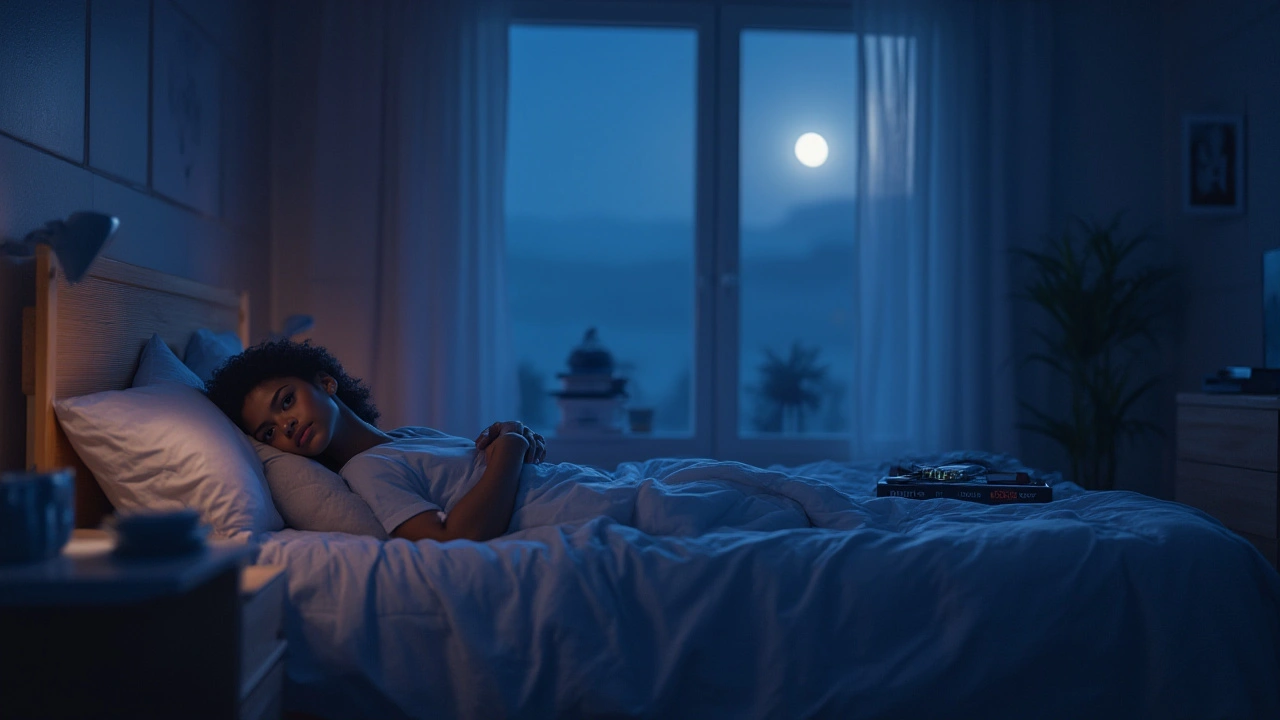Sleep Hormone (Melatonin): What It Does and How to Use It
Ever wonder why you feel sleepy when the lights go down? That’s melatonin, the hormone that tells your brain it’s time to wind down. Your body makes it in response to darkness, and it helps set the internal clock that controls when you feel awake or tired.
When melatonin levels rise, your body temperature dips, heart rate slows, and you start to feel relaxed. If the hormone doesn’t spike enough, you may toss and turn, feel groggy in the morning, or need caffeine to make it through the day.
How Melatonin Regulates Your Sleep
Melatonin isn’t a sedative; it’s more like a signal. The pineal gland releases it after sunset, peaking around 2‑3 am for most adults. Light—especially blue light from phones—shuts down production, which is why scrolling late can delay sleep.
Research shows that a clear melatonin surge improves the speed at which you fall asleep (sleep latency) and can lengthen deep sleep stages. It also helps shift workers and travelers adjust to new time zones by resetting the circadian rhythm.
Practical Tips for Boosting Your Sleep Hormone
First, dim the lights an hour before bedtime. Warm lamps, blackout curtains, or a blue‑light filter on devices make a big difference. Your body will notice the darkness and crank up melatonin naturally.
Second, consider melatonin‑rich foods. Cherries, grapes, tomatoes, and walnuts contain small amounts that add up when you eat them regularly. A handful of nuts or a glass of tart‑cherry juice before bed can give a gentle boost.
Third, if you need a supplement, start low—0.3 mg to 1 mg about 30‑60 minutes before sleep. Higher doses aren’t always better and can cause morning grogginess. Always check with a doctor if you’re pregnant, nursing, or on medication.
Fourth, keep a consistent sleep schedule. Going to bed and waking up at the same time trains your body to release melatonin at the right moment, making the hormone’s effect stronger night after night.
Finally, move your exercise routine to earlier in the day. Physical activity raises body temperature, and the cooling down afterward signals melatonin release. Working out late can push the hormone’s timing later, making it harder to fall asleep.
By managing light, diet, timing, and activity, you can let melatonin do its job without over‑relying on pills. Your sleep will feel more natural, and you’ll wake up refreshed. Give these tweaks a try and notice how quickly the sleep hormone kicks in.
Melatonin: Sleep Hormone Secrets, Natural Benefits, and Surprising Uses
Get a no-nonsense guide to melatonin—the sleep hormone. Learn its science, benefits, natural tips, and surprising uses for better nights.

